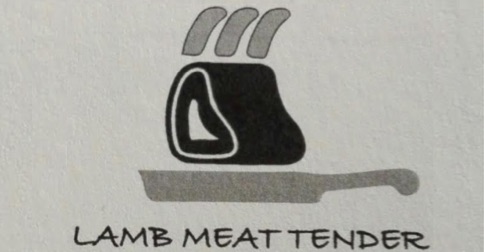Inauguration figure
Madame Tussauds in London has managed to finish its wax figure of Donald Trump in time for his inauguration as 45th President of the United States.
With the exception of yogurt, the only common words containing unstressed -gur- are figure and inauguration, along with words related to them like figurative, configuration, inaugural and inaugurated.
Many English speakers, myself included, pronounce gur differently in the two groups of words. In inauguration and related words, we put a /j/ sound (the first sound in yes and use) after the /g/. But in figure and related words there’s no /j/. So we get e.g. inau/gj/uration but confi/g/uration. And figure rhymes with bigger.
This is the pattern shown in most British English dictionaries. But it isn’t true of all English speakers. A lot of Americans (but not all) are more consistent, using /gj/ in figure as well as inauguration:
(Furthermore, some speakers who rhyme figure with bigger nonetheless use /gj/ in related forms like confi/gj/uration. And some Brits don’t use the /j/ in inau/g/uration.)
Trump will be the first President to have already been modelled by Tussauds – a relatively slimline version made in 1997. The new Donald is a much bigger figure.
Fitness pizza
 After the indulgence of the holiday season, New Year is a time when we’re encouraged to think about fitness. I recently encountered this meme: ‘Fitness? More like fitness whole pizza in my mouth’. There’s a lesson for non-native users of English here.
After the indulgence of the holiday season, New Year is a time when we’re encouraged to think about fitness. I recently encountered this meme: ‘Fitness? More like fitness whole pizza in my mouth’. There’s a lesson for non-native users of English here.
The joke rests on the fact that fitting this can sound very like the word fitness. Several phonetic features combine to make this possible. One is the fact that the suffix -ing is often pronounced as -in. This is more common in casual speech (and in pop-rock singing), though for some speakers it’s a usual pronunciation. Here’s a British woman saying goin’ around selling, with both the -in and the -ing pronunciation in a single phrase:
So fitting may be pronounced fittin’. And after t, the ending may be further reduced, producing fit’n’.
Another feature, and one well worth pointing out to non-natives, is the weakness of the initial th- in unstressed words like the and this. This sound (phonetic symbol ð) is often over-articulated by non-natives; but in native speech it’s so weak that it often assimilates completely to a preceding s, z, l or n. For instance, in this can be pronounced in‿nis. Listen to this American man saying What was the low point in this?, with the final syllable repeated:
So fitting this can become fit’n’nis, which is very like fitness.
I encourage non-natives not to pronounce -ing as ɪn, but rather to practise the ‘standard’ form ɪŋ. On the other hand, I think it’s worth trying out assimilated forms like in‿nis (for in this) and how’s‿zat (for how’s that) as a correction for over-pronouncing th, and to see how natives negotiate tricky word connections.
Hosannar!
 One of the most popular Christmas carols (songs) is Ding Dong Merrily On High. It’s an old French tune
One of the most popular Christmas carols (songs) is Ding Dong Merrily On High. It’s an old French tune
which was published in 1924 with English lyrics:
Ding dong merrily on high,
In heav’n the bells are ringing:
Ding dong! verily the sky
Is riv’n with angel singing.
Gloria, Hosanna in excelsis!
The Latin in excelsis is translated as ‘in the highest’ (in heaven). Hosanna comes from Hebrew and is an exclamation of praise; English speakers pronounce it with the same final vowel that they use in sofa, extra, America, etc., namely the little colourless vowel ‘schwa’, symbolized /ə/.
When such words are followed by a vowel in the next word, a connecting /r/ is often added by speakers in England, Wales, Australia and New Zealand (and by some in the USA, like Bernie Sanders). This is especially likely in frequent word combinations where the following vowel is unstressed, e.g. Obama/r/administration, Pizza/r/Express, Honda/r/Accord – and, given the carol’s popularity, hosanna/r/in excelsis. Every Christmas it can be widely heard in England:
The added /r/ is an example of the way in which languages sometimes try to avoid sequences of vowels (languages prefer consonants and vowels to alternate); and it’s been around quite a long time. Here’s a New Zealand writer mentioning it in 1899:  That writer didn’t like the added /r/. It’s long been condemned as ‘intrusive’, although it’s used by speakers of all social classes and educational levels. Many choral directors train their choirs not to sing hosanna/r/in excelsis, but without such training choirs in England etc. will naturally tend to sing it that way.
That writer didn’t like the added /r/. It’s long been condemned as ‘intrusive’, although it’s used by speakers of all social classes and educational levels. Many choral directors train their choirs not to sing hosanna/r/in excelsis, but without such training choirs in England etc. will naturally tend to sing it that way.
Should non-natives avoid this kind of /r/ in their spoken English? The individuals I know who’ve got closest to a native-sounding British accent do tend to use it. I myself stopped using it, not because I disapprove of it but because of years spent living in the USA and Scotland, where I tended to ‘accommodate’ my pronunciation to the locals. But for most non-native users of English, the question of avoidance is really immaterial, because their speech is so dominated by writing that they’re very unlikely to say a consonant that isn’t written.
(You can hear many more examples of linking /r/ in this longer and more technical article.)
Words of the Week is taking a break until the New Year. A happy and peaceful holiday season to all my readers!
Lamb meat tender
 TOKYO – After one of my seminars here, I was taken to a restaurant called Lamb Meat Tender. My immediate reaction to the name was condescending: the throwing together of two English nouns and an adjective seemed typical of the clumsy way in which non-natives can use foreign words. (Think of Westerners’ taste for tattooing themselves with Chinese characters they don’t understand.)
TOKYO – After one of my seminars here, I was taken to a restaurant called Lamb Meat Tender. My immediate reaction to the name was condescending: the throwing together of two English nouns and an adjective seemed typical of the clumsy way in which non-natives can use foreign words. (Think of Westerners’ taste for tattooing themselves with Chinese characters they don’t understand.)
What I didn’t realize is that Japanese people can see the restaurant’s name as a clever pun. It evokes the song Love Me Tender, made famous by Elvis Presley, who is very big in Japan. (A Japanese participant on UCL’s Summer Course in English Phonetics once told me he’d come for the purpose of improving his Elvis impersonation.)
Other native speakers of English might have quicker brains than mine, but I had to have the joke explained to me, mainly because my English brain and ear find lamb and love so different. Firstly, the two words contain different vowels, those of TRAP and STRUT respectively. Secondly, their final consonants are quite different, /m/ shutting the two lips together while /v/ blows air between the top teeth and lower lip:
For the Japanese on the other hand, the two words are almost identical. Lamb and love both seem to contain the Japanese vowel /a/. (Phonetic transcription doesn’t help them that much, because the TRAP vowel is transcribed with a kind of ‘a’, either /æ/ or /a/, while the STRUT vowel is usually transcribed with /ʌ/, which looks like a stylized capital ‘A‘.) And the Japanese don’t have the consonant /v/, which they typically pronounce in English words by drawing both lips together, as in /m/.
You over-pronouncing this word?
 A very important aspect of English is its distinction between prominent syllables and weak syllables. It’s an aspect of the language that’s not shown in writing, and many non-natives don’t show it very much when they speak.
A very important aspect of English is its distinction between prominent syllables and weak syllables. It’s an aspect of the language that’s not shown in writing, and many non-natives don’t show it very much when they speak.
Among the most common words of English are ‘function words’, such as articles, prepositions and auxiliary verbs, which serve to frame the more meaning-rich ‘content words’. These framing words are often pronounced very weakly in native speech, many of them with the colourless little vowel ‘schwa’ (phonetic symbol ə).  It would be a mistake to see natives as ‘failing’ to pronounce such words the way they’re written: rather, it’s the writing system that ‘fails’ to reflect this key feature of the language. If function words are pronounced strongly, as they are by many non-natives, then the content words stand out less; it’s like making the frame of a painting too big.
It would be a mistake to see natives as ‘failing’ to pronounce such words the way they’re written: rather, it’s the writing system that ‘fails’ to reflect this key feature of the language. If function words are pronounced strongly, as they are by many non-natives, then the content words stand out less; it’s like making the frame of a painting too big.
Non-natives are particularly reluctant to weaken the word are. In England, this frequently weakens to no more than a little ə, just like the indefinite article a. (Other accents, including General American, can weaken are without losing its r sound.) Here are native utterances by British speakers in which are is merely a schwa:
At the start of a sentence, are can sometimes disappear altogether, e.g. Are you sure? -> You sure?
Are is not always weak. It can be pronounced strongly if emphasized, or when there’s no immediately following word for it to lean on:
professional chamber choirs in the country
Observe conservative insurgencies
 The word observe is a bit odd, because the s is pronounced as a /z/:
The word observe is a bit odd, because the s is pronounced as a /z/:
Serve can be pronounced with /z/ when a vowel precedes, in reserve, deserve and preserve. But at the start of a word or when a consonant precedes, we generally get /s/:
serve, service, serving, servant, servile
conserve, conservative, conservation
subservient, subservience
disservice
unserviceable
manservant, maidservant
For example, con/s/ervative:
So ob/z/erve is the odd one out (along with ob/z/ervation, ob/z/ervant, ob/z/ervatory, etc.)
Like ser-, sur- is also generally pronounced with /s/, as in insurgency:
And also absurd:
But just as ser- has a /z/ when preceded by a vowel in reserve, deserve and preserve, sur- likewise has /z/ when preceded by a vowel in usurp (which refers to the taking of some kind of power without proper authority):
At least that’s the traditional British pronunciation. From Americans, and many Brits today, you can hear usurp pronounced with /s/:
(There are some people who pronounce absurd with /z/; but I think the clips above represent the most common pronunciations.)
Sir Paul’s surprise
This guy got a last minute reprieve. Happy Bonfire Night! ? pic.twitter.com/3YvNr3fHWV
— Paul McCartney (@PaulMcCartney) November 5, 2016
Sir Paul McCartney surprised his fans this week, mainly by suggesting that stage fright almost made him leave the Beatles, and then by tweeting an old photo to celebrate Britain’s Bonfire Night on November 5th.
The title Sir – which shows that he’s been knighted by the Queen – is often mispronounced by non-natives. Here is a non-native saying Professor Sir Paul Collier:
There the word Sir is pronounced strongly. In England, on the other hand, Sir is just a weak syllable sə attached to the given name. Some native examples:
(In the last example, Sir has no distinct vowel, giving Srisaac Newton.)
Here are all the instances of Sir in those clips:
This means that Sir sounds like the weak first syllable of surprise:
And here are the first syllables of surprise in those clips:
Sir can be pronounced strongly, when used as a term of address rather than as a title. In England it then has the long vowel əː (often written ɜː). Native examples:
And here are all the instances of strong sir in those clips:
Of course, if there’s a special reason to emphasize the title Sir, it may be pronounced strongly:
The way to loss
 I recently misunderstood a non-native student. At first I thought she’d said the way to loss, and I offered as a correction the way to lose (fat, weight, etc.). But then it became clear that her intended words were the weight loss.
I recently misunderstood a non-native student. At first I thought she’d said the way to loss, and I offered as a correction the way to lose (fat, weight, etc.). But then it became clear that her intended words were the weight loss.
The problem for me was that she had clearly released the t on the end of weight, and followed it with a little vowel. Native speakers very often don’t audibly release final t when a consonant follows: the air is stopped, and there’s a brief silence, but this leads directly into the following consonant. It’s particularly likely inside a word, e.g. Scot‿land, foot‿ball, or in commonly occurring sequences like Great‿Britain and weight‿loss.*
The automatic British English voice in Google Translate does exactly this. Listen to the audible release of t on the end of weight when said alone, but not in weight loss:
And here are some native speakers saying weight loss without a clear explosion of the final t:
(The last speaker, who is American, has no audible explosion of final t in either weight or without.)
My student also added a small vowel between the final t and the following consonant. (This is common with native speakers of various languages including Japanese, Italian and Chinese.) But it’s liable to be heard by a native speaker as the word to, hence my first interpretation way to. Illustrating the difference between this and native weight loss, here are some native speakers saying phrases containing way to:
*And FRIGHT‿NIGHT. Happy Halloween!
Objective: adjective
 A word that’s very often mispronounced by non-natives is the noun adjective. Natives put the main stress at the beginning, Ádjective. But non-natives tend to skip the initial ad- and put the main stress in the middle, adjÉctive. Here are examples of the native pronunciation:
A word that’s very often mispronounced by non-natives is the noun adjective. Natives put the main stress at the beginning, Ádjective. But non-natives tend to skip the initial ad- and put the main stress in the middle, adjÉctive. Here are examples of the native pronunciation:
The non-native mistake isn’t surprising. For one thing, most three-syllable nouns beginning ad- have a weak first vowel and the main stress in the middle, e.g.
advÁntage, advÉnture, admÍrer, addÍction, admÍssion, adhÉsive, adjÚstment, advÁncement
Those with initial stress are less common, e.g.
Ádmiral, Ádvocate, Ádditive, Ádenoid
The pattern with words ending -ective is even clearer. Whether nouns or adjectives, these generally have the main stress in the middle, e.g.
objÉctive, perspÉctive, detÉctive, dirÉctive, subjÉctive, effÉctive, protÉctive, respÉctive, reflÉctive, selÉctive
As far as I’m aware, adjective is the only one with initial stress.
For comparison, here are examples of objÉctive used by natives:
Further notes
The second syllable of adjective can contain any one of three vowels, /ɪ/, /ə/ or /ɛ/.
The penultimate stress of words like adventure and admirer and the antepenultimate stress of words like advocate and admiral is related to the fact that the middle syllable is ‘heavy’ in the former but ‘light’ in the latter.
My sweet lover
 A student recently told me that her husband was a sweet lover. But the way she said it conveyed a different meaning from the one she intended. She meant to tell me that he loves sweets, but her pronunciation suggested that he’s a sweet kind of lover.
A student recently told me that her husband was a sweet lover. But the way she said it conveyed a different meaning from the one she intended. She meant to tell me that he loves sweets, but her pronunciation suggested that he’s a sweet kind of lover.
If we accentuate lover after the word sweet, then English speakers are likely to understand this as a lover described by the adjective sweet. So sweet LOVER means ‘lover who is sweet’. (Sweet may or may not also be accentuated.)
But if we combine two nouns into a compound in which the second does something to the first, then we accentuate only the first noun. So SWEET lover means ‘lover of sweets’, with sweet used here as a noun. My student intended this second meaning, but accentuated lover. It’s the non-accenting of a final noun which speakers of many languages find so difficult.
Here are some examples of adjective-noun phrases and compound nouns:
Of course this doesn’t only apply to the examples with lover. Here are further examples with other nouns. As before, the noun is accentuated if it’s described by a preceding adjective, but not accentuated if it does something to a preceding noun:
Further notes
In all the examples above, the final noun is based on a verb: love, play, use, sell. In other compound nouns, the meaning relation may be one in which the second noun ‘does something to’ the first (e.g. RIOT police, FIREman) but often isn’t (e.g. INTEREST rate, WINDOW ledge, SNOWman).










